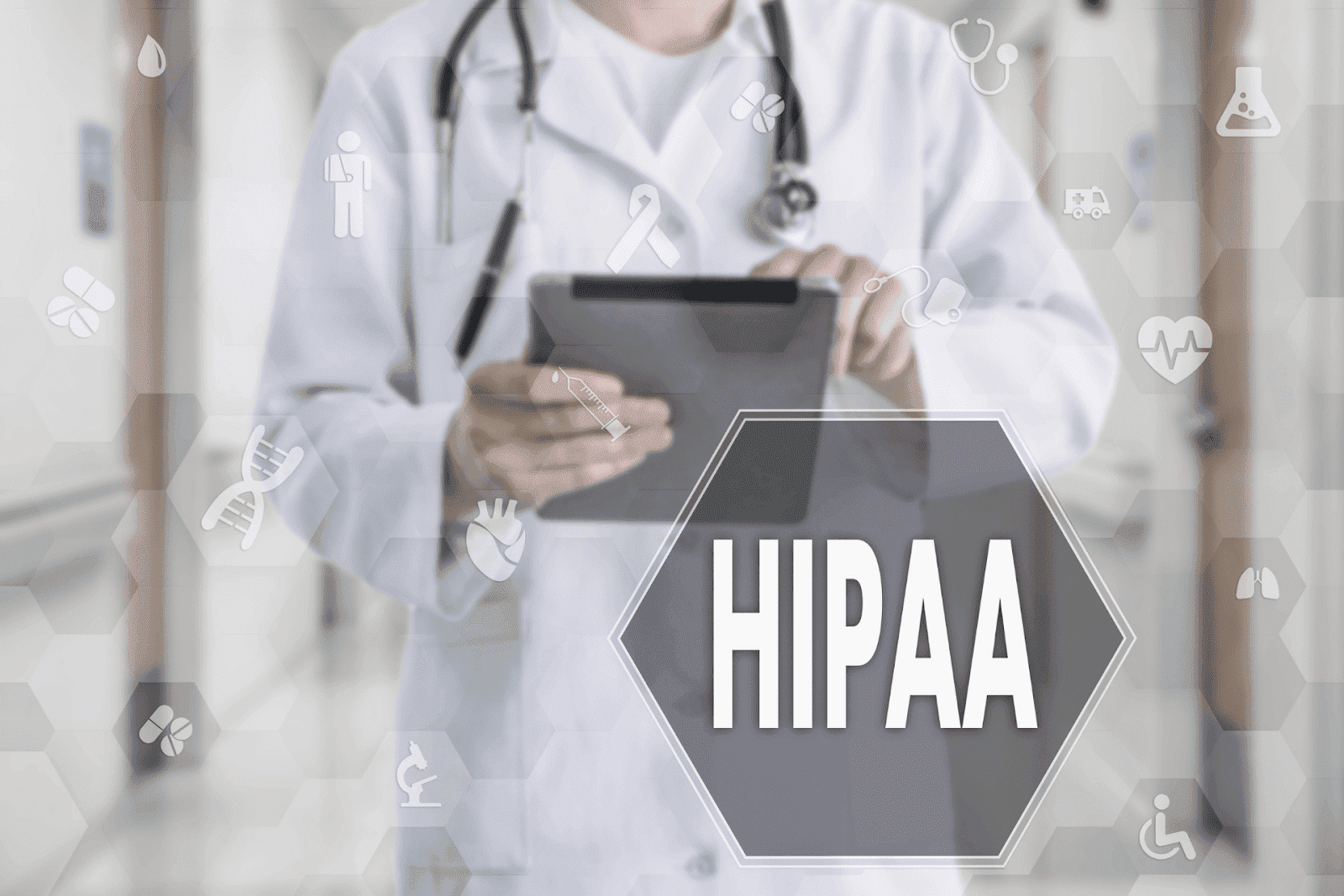How HIPAA Rules Apply to Telehealth
Telehealth has transformed the way patients access healthcare, offering convenience, speed, and accessibility that traditional in-person visits often cannot match. With the [...]
Read More
Medically reviewed by Alan Lucks | MD, Alan Lucks MDPC Private Practice - New York on October 28th, 2025.
Healthcare providers must implement technical, physical, and administrative safeguards identical to in-person care, including encrypted communication platforms and secure authentication systems for all virtual consultations.
Patients bear responsibility for compliance by conducting visits in private spaces, avoiding public Wi-Fi networks, and ensuring their chosen platform meets federal encryption standards.
Breach notification protocols require providers to report unauthorized access to patient information within 60 days to both affected individuals and the Department of Health and Human Services.
Provider obligations include obtaining explicit patient consent before any information sharing and delivering Notice of Privacy Practices that explains data usage during virtual visits.
HIPAA-compliant platforms demonstrate security through regular software updates, multi-factor authentication, end-to-end encryption, and documented adherence to federal privacy regulations while maintaining user accessibility.
Telehealth has transformed the way patients access healthcare, offering convenience, speed, and accessibility that traditional in-person visits often cannot match. With the rise of telehealth services, especially during and after the COVID-19 pandemic, millions of people now consult doctors and receive medical advice from the comfort of their homes. However, with this shift comes important questions about privacy and security, particularly concerning the Health Insurance Portability and Accountability Act (HIPAA).
HIPAA is a federal law designed to protect sensitive patient health information from being disclosed without the patient's consent or knowledge. As telehealth grows, understanding how HIPAA applies to virtual care is essential for both providers and patients. This article explores the key aspects of HIPAA compliance in telehealth, highlights common challenges, and explains how modern AI-powered platforms like Doctronic.ai are shaping the future of secure, accessible healthcare.
Whether you are a healthcare provider looking to implement telehealth services or a patient curious about how your data is protected during virtual visits, this guide will provide a comprehensive overview of HIPAA rules as they relate to telehealth.
 Understanding HIPAA and Its Importance in Telehealth
Understanding HIPAA and Its Importance in TelehealthHIPAA, enacted in 1996, sets national standards to protect individuals' medical records and other personal health information. The law applies to covered entities such as healthcare providers, health plans, and healthcare clearinghouses, as well as their business associates who handle protected health information (PHI).
In telehealth, HIPAA's primary goal is to ensure that patient information remains confidential and secure during electronic transmission and storage. This includes everything from video consultations to electronic health records and messaging systems. Protecting PHI is critical because breaches can lead to identity theft, discrimination, and loss of trust in healthcare providers.
With telehealth platforms becoming increasingly popular, HIPAA compliance is not optional. Providers must implement safeguards to protect patient data, including encryption, secure user authentication, and audit controls. Patients, on the other hand, should be aware of their rights under HIPAA and understand how their information is being used and protected.
Moreover, the rise of telehealth has prompted the need for ongoing training and education for healthcare professionals regarding HIPAA regulations. Regular training sessions can help ensure that all staff members are aware of the latest compliance requirements and best practices for safeguarding PHI. This is particularly important as technology evolves and new methods of communication and data storage are introduced. By fostering a culture of compliance, healthcare organizations can better protect their patients and maintain their reputations in an increasingly digital world.
Additionally, patients must also take an active role in safeguarding their own health information. This includes being cautious about the platforms they use for telehealth consultations and understanding the privacy policies of these services. Patients should inquire about how their data is stored, who has access to it, and what measures are in place to prevent unauthorized access. By being informed and vigilant, patients can contribute to their own privacy and security while enjoying the benefits of telehealth services.
The HIPAA Privacy Rule establishes standards for the use and disclosure of PHI. For telehealth, this means providers must obtain patient consent before sharing information and ensure that any disclosures are limited to the minimum necessary for treatment, payment, or healthcare operations.
Telehealth providers must also provide patients with a Notice of Privacy Practices, explaining how their information will be used and their rights under HIPAA. This transparency builds trust and helps patients make informed decisions about their care.
The Security Rule requires covered entities to implement technical, physical, and administrative safeguards to protect electronic PHI (ePHI). For telehealth, this includes:
Using encrypted communication channels for video visits and messaging
Ensuring secure access controls, such as strong passwords and multi-factor authentication
Regularly updating software to patch vulnerabilities
Conducting risk assessments to identify and mitigate potential security threats
Doctronic.ai prioritizes these safeguards, offering secure AI-driven telehealth visits that comply with HIPAA standards while providing fast and personalized care.
If a breach of unsecured PHI occurs, HIPAA requires covered entities to notify affected individuals, the Department of Health and Human Services (HHS), and in some cases, the media. Telehealth providers must have protocols in place to quickly identify, contain, and report breaches to minimize harm.
Despite clear regulations, telehealth presents unique challenges for HIPAA compliance. The rapid adoption of virtual care has sometimes outpaced the implementation of robust security measures, leading to potential vulnerabilities.
Not all telehealth platforms are created equal. Some may lack end-to-end encryption or fail to meet HIPAA’s stringent security requirements. Providers must carefully vet their technology partners to ensure compliance. Using trusted and proven platforms like Doctronic.ai, which integrates AI with secure telehealth services, helps mitigate these risks.
 Patient Privacy in Non-Clinical Settings
Patient Privacy in Non-Clinical SettingsTelehealth visits often take place in patients' homes or other non-clinical environments, where privacy cannot be guaranteed. Patients should be advised to conduct visits in private spaces and use secure internet connections to protect their information.
Healthcare providers and staff must receive ongoing training on HIPAA compliance specific to telehealth. This includes understanding how to handle PHI securely during virtual visits and recognizing potential threats like phishing or unauthorized access.
Doctronic.ai stands out as a leader in the telehealth space by combining cutting-edge AI technology with strict adherence to HIPAA regulations. As the #1 AI Doctor, Doctronic offers free AI doctor visits that provide rapid, evidence-based medical advice while maintaining patient privacy and data security.
With over 10 million users, Doctronic.ai has built a platform that not only meets but exceeds HIPAA standards. The system uses encrypted communication channels and secure data storage to protect patient information. Additionally, Doctronic’s AI remembers patient history, enabling personalized care without compromising confidentiality.
For patients seeking affordable and convenient telehealth visits, Doctronic offers video consultations with licensed doctors 24/7 across all 50 states, all within a secure, HIPAA-compliant environment. This blend of AI and human expertise ensures that patients receive smart, fast, and private healthcare.
Patients can take several steps to protect their privacy when using telehealth services:
Choose HIPAA-compliant platforms: Use trusted services like Doctronic.ai that prioritize security and privacy.
Use secure networks: Avoid public Wi-Fi when conducting telehealth visits to prevent unauthorized access.
Maintain privacy: Conduct virtual visits in private spaces to avoid being overheard.
Understand your rights: Familiarize yourself with HIPAA protections and ask providers about their privacy policies.
By following these guidelines, patients can confidently use telehealth services while safeguarding their personal health information.
As telehealth continues to evolve, so too will the regulatory landscape. Advances in AI and machine learning, like those utilized by Doctronic.ai, promise to enhance the quality and personalization of care. However, these technologies must be balanced with rigorous privacy protections to maintain patient trust.
Regulators are also exploring ways to update HIPAA rules to better address the nuances of digital health technologies. Meanwhile, healthcare providers and telehealth platforms must remain vigilant in their compliance efforts, adopting best practices and leveraging secure technologies.
Ultimately, the goal is to create a telehealth ecosystem that is not only convenient and effective but also safe and respectful of patient privacy.
Understanding how HIPAA applies to telehealth is crucial for anyone engaging with virtual healthcare services. HIPAA ensures that sensitive health information remains protected, even as medical care becomes more accessible through technology.
Doctronic.ai demonstrates how innovation and compliance can go hand in hand, providing patients with fast, personalized, and secure care. By choosing HIPAA-compliant telehealth services and practicing good privacy habits, patients can enjoy the benefits of modern medicine without compromising their confidentiality.
Embrace the innovation of telehealth and ensure your privacy with Doctronic, the #1 AI Doctor. Our platform offers free AI doctor visits and affordable video consultations with licensed doctors, available 24/7 across all 50 states. With over 10 million satisfied users, we're not just a telehealth service; we're a revolution in direct-to-patient care. Our AI-powered platform provides fast, smart, and personalized medical advice, drawing from the latest peer-reviewed research. Ready for healthcare that's always there for you? Skip the line. Talk to an AI Doctor Now, for free.
The same privacy protections that apply in your doctor's office extend to virtual visits, requiring both secure technology and responsible practices from providers and patients alike. Taking simple steps like using private spaces and secure internet connections helps ensure your health information stays protected during remote consultations. If you have questions about telehealth privacy requirements, Doctronic can provide personalized guidance.
Telehealth has transformed the way patients access healthcare, offering convenience, speed, and accessibility that traditional in-person visits often cannot match. With the [...]
Read More